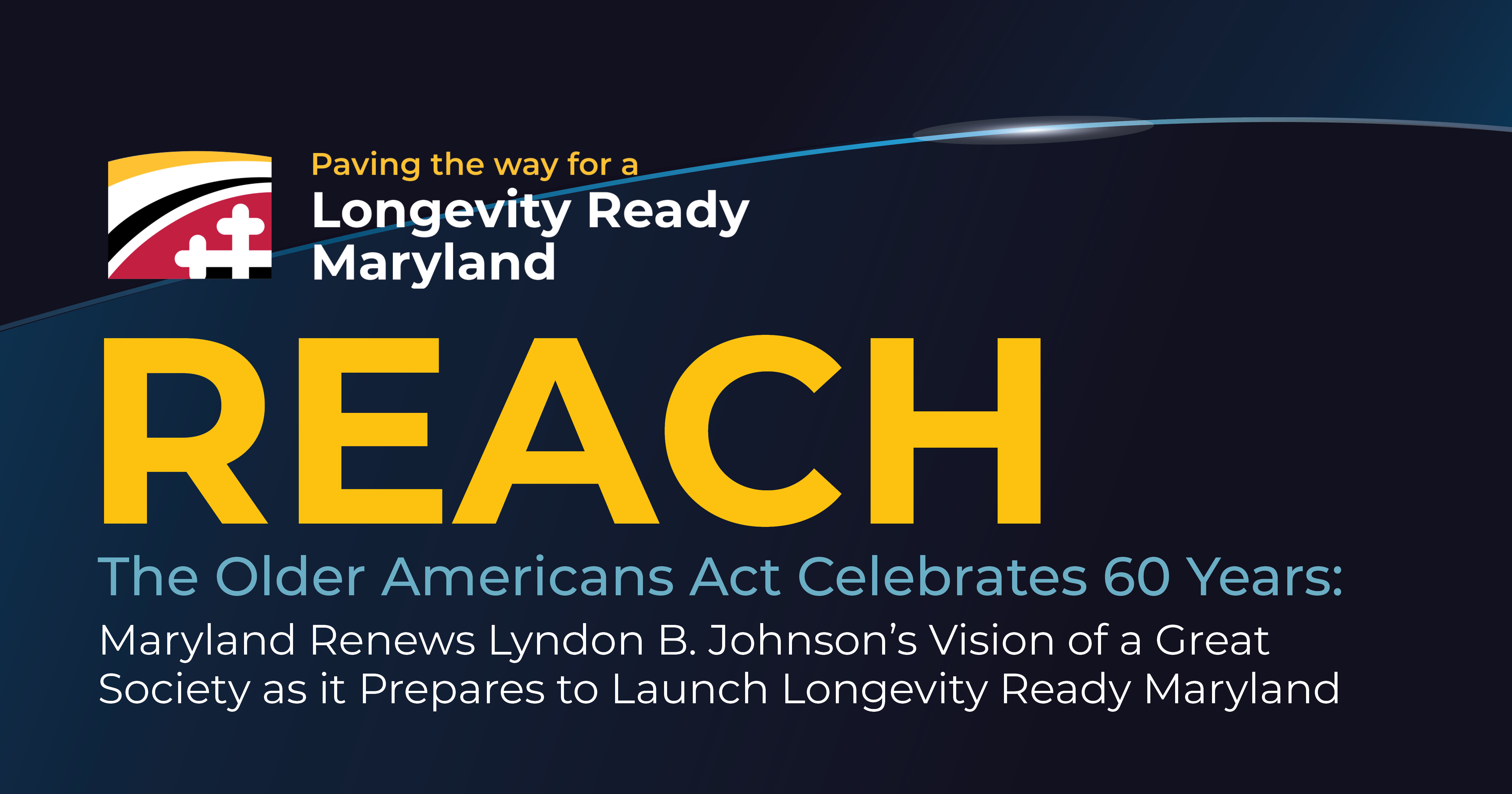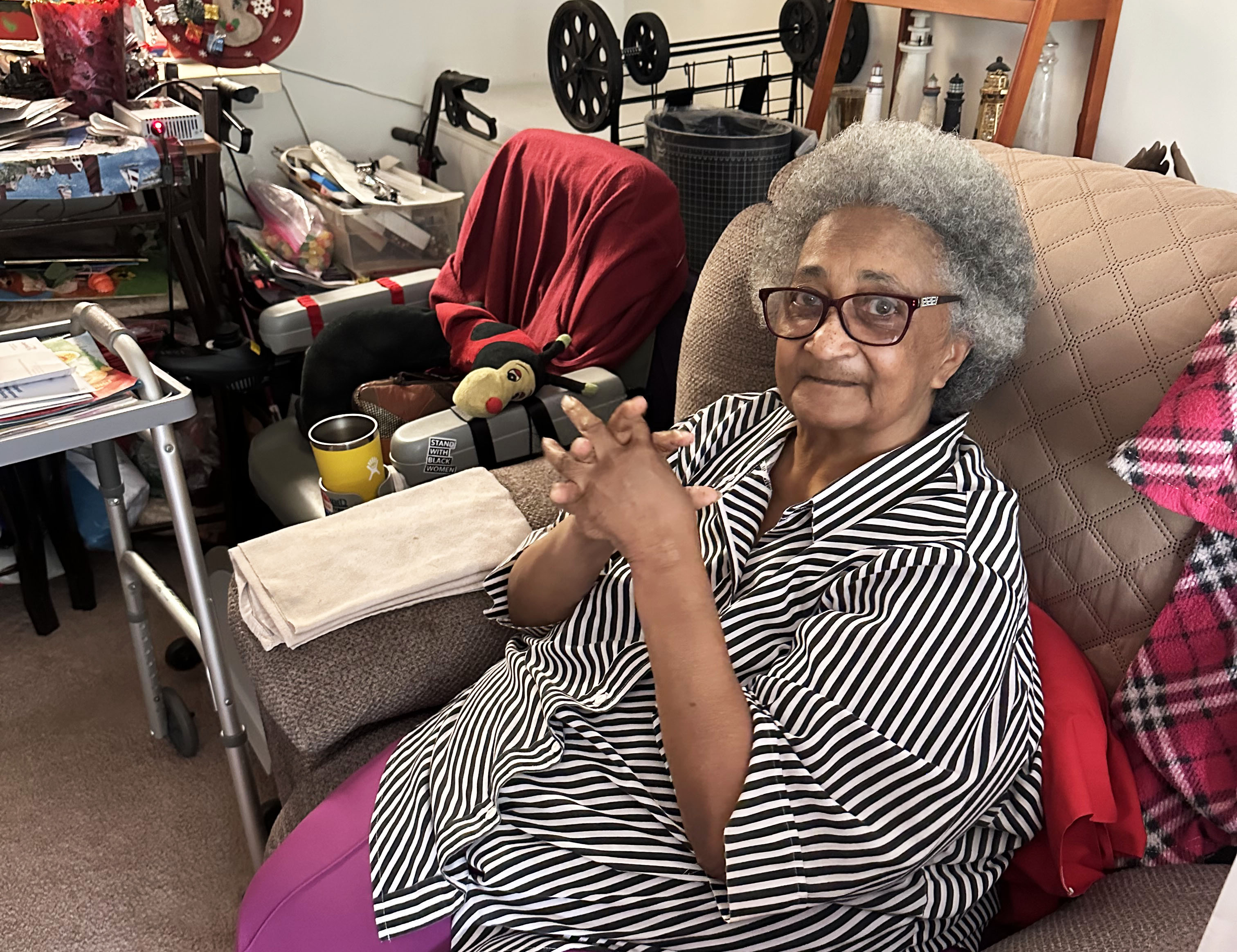
Older Americans Act Turns 60
Maryland Renews Lyndon B. Johnson’s Vision of a Great Society as it Prepares to Launch Longevity Ready Maryland
Two weeks from today marks the 60th anniversary of the signing of the Older Americans Act (OAA), a landmark piece of legislation that continues to shape the lives of older adults across the country. Leading up to this historic milestone, we’ve been sharing the profound impact of OAA funding on Maryland and reaffirming our commitment to ensuring dignity, independence, and opportunity for older adults. As we approach the launch of Longevity Ready Maryland (LRM) in the weeks to come, the Maryland Department of Aging (MDOA) is preparing to recast Maryland as a national model for what a Great Society can look like today and in the years to come.

Glenda, a 77-year-old independent living resident, worries about what might happen to her if the supports she receives through OAA funding weren’t there. “There’s a lot of things I can’t do that you automatically do every single day. These are things you take for granted until you cannot do them … The aide that helps me, I think she’s wonderful! If they stopped tomorrow, I don't know what I would do."
In the late 50s, living conditions for many older adults were shockingly poor in the U.S. About 1 in 3 older adults lived in poverty, and with no comprehensive federal policy addressing their needs, many experienced deplorable social and health conditions of aging in America. Far too many older adults with little income or resources lived without basic necessities, lacked access to food or health care, and were ruthlessly evicted from their homes or fired from their jobs without cause.
Advocacy efforts began documenting the struggles of older adults from across the country, leading up to the
1961 White House Conference on Aging—a turning point for older adults in America. This fostered in a new era of social reforms, including key Social Security amendments, housing and health care reforms, and the signing of the OAA on July 14, 1965.
As part of President Johnson’s “Great Society” initiative, OAA aimed to improve older Americans' ability to live in their homes and communities with dignity and independence for as long as possible. Many young children at the time are now the beneficiaries of OAA programs, which have served as a crucial lifeline in longevity readiness for 60 years.
As Maryland communities face an increasing demand on comprehensive care systems to support a growing number of older residents,
OAA funding has never been more important. Although the Senate unanimously reauthorized OAA funding in December 2024, the House has taken no action, and Congress has yet to fully fund the programs through the regular appropriations process. On June 18, the Senate reintroduced
the legislation, and urged Congress to move it forward.
“The OAA has been a lifeline for American seniors since its passage over half a century ago,” said U.S. Senator Kirsten Gillibrand, ranking member of the Senate Aging Committee. “One in six older Americans are served by programs funded by the OAA. We owe it to seniors to strengthen and continue funding these programs so they have the support they need to age with dignity and respect.”
MDOA takes its responsibility for allocating OAA funding seriously. We understand how important it is to the older adults who depend on it, and are determined to never return to the conditions that far too many older adults lived in before they had access to OAA supports.
“Every dollar of OAA funding is an investment in the well-being of older Marylanders,” said MDOA Secretary Carmel Roques. “Through LRM, we will continue to champion OAA policies and programs that ensure no older adult is left behind. As Marylanders live longer, it’s our responsibility to ensure they live healthy, financially secure, socially connected, and purposeful lives.”
“Without the help I wouldn’t be able to live here,” said Kathleen, an independent living community resident who receives in-home care and prepared meals through OAA programs. “It isn’t a lot of hours, but my quality of life would be a lot more challenging without it,” she said.
Like the OAA, every program and system of support for older adults has its origin story. From key national strategies to the neighborhood village and everywhere in between, each emerged from a need that was recognized and a collection of concerned citizens who stepped up to meet those challenges. Each program is uniquely valuable, but represents a patchwork of supports that can be difficult to navigate and vulnerable to disruption. LRM is intended to address these vulnerabilities and build more sustainable systems of care by coordinating resources across communities and sectors, and applying longevity-readiness planning across the lifespan. By being the first state to incorporate our ten-year multisector plan for aging with our four-year state plan on aging, Maryland is addressing needs of older adults today while preparing Marylanders of all ages for better outcomes in the future.
At the intersection of the historic OAA milestone, unprecedented funding cuts, and the imminent launch of LRM, we invite every resident and service provider to be a part of a renewed vision of aging in Maryland as implementation begins in the weeks ahead.
Looking ahead...
LRM launches a final plan and new website.
A key feature of LRM will be a new website, with guidance for incorporating a longevity lens across the lifespan, and digital resources for strengthening longevity-readiness at the community level. The site will serve as a critical tool for bringing aging resources and systems of care together, fostering LRM's goal of creating a more collaborative network across sectors and communities. Stay tuned for announcements about the launch of LRM and the new website next month.